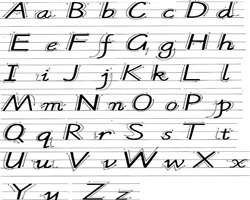春节习俗 Customs of the Spring Festival
01-22
The Spring Festival is a traditional Chinese festival and also the most important one of the whole year. Through the evolvement of thousands of years, a series of customs are spreading far and wide.
扫尘 Sweeping the Dust
“Dust” is homophonic with “chen”(尘)in Chinese, which means old and past. In this way, “sweeping the dust” before the Spring Festival means a thorough cleaning of houses to sweep away bad luck in the past year. This custom shows a good wish of putting away old things to welcome a new life. In a word, just before the Spring Festival comes, every household will give a thorough cleaning to bid farewell to the old year and usher in the new.
贴春联 Pasting Spring Couplets
“The Spring Couplet”, also called “couplet” and “a pair of antithetical phrases”, is a special form of literature in China. The Spring Couplet is composed of two antithetical sentences on both sides of the door and a horizontal scroll bearing an inscription, usually an auspicious phrase, above the gate. The sentence pasting on the right side of the door is called the first line of the couplet and the one on the left the second line. On the eve of the Spring Festival, every household will paste on doors a spring couplet written on red paper to give a happy and prosperous atmosphere of the Festival. In the past, the Chinese usually wrote their own spring couplet with a brush or asked others to do for them, while nowadays, it is common for people to buy the printed spring couplet in the market.
贴窗花和“福”字 Pasting Paper-cuts and “Up-sided Fu”
Paper-cuts, usually with auspicious patterns, give a happy and prosperous atmosphere of the Festival and express the good wishes of Chinese people looking forward to a good life. In addition to pasting paper-cuts on windows, it is common for Chinese to paste the character “fu(福)”, big and small, on walls, doors and doorposts around the houses. “Fu(福)” shows people’s yearning toward a good life. Some people even invert the character “fu(福)” to signify that blessing has arrived because “inverted” is a homonym for “arrive” in Chinese. Now many kinds of paper-cuts and “fu(福)” can be seen in the market before the Festival.
守岁 Staying Up Late on New Year's Eve
The tradition of staying up late to see New Year in originated from an interesting folk tale. In ancient China there lived a monster named Year, who was very ferocious. Year always went out from its burrow on New Year’s Eve to devour people. Therefore, on every New Year’s Eve, every household would have supper together. After dinner, no one dared go to sleep and all the family members would sit together, chatting and emboldening each other. Gradually the habit of staying up late on New Year’s Eve is formed. Thus in China, “celebrating the Spring Festival” is also called “passing over the year (guo nian)”. However, now there are less and less people in cities who will stay up late to see New Year in.
春节习俗 Customs of the Spring Festival
友友评论:
内容相关随机推荐:
暂无相关信息!
- 相关链接:
-
资源说明:
三思网刊三思网刊-生活英语-《春节习俗 Customs of the Spring Festival》
 。
。




